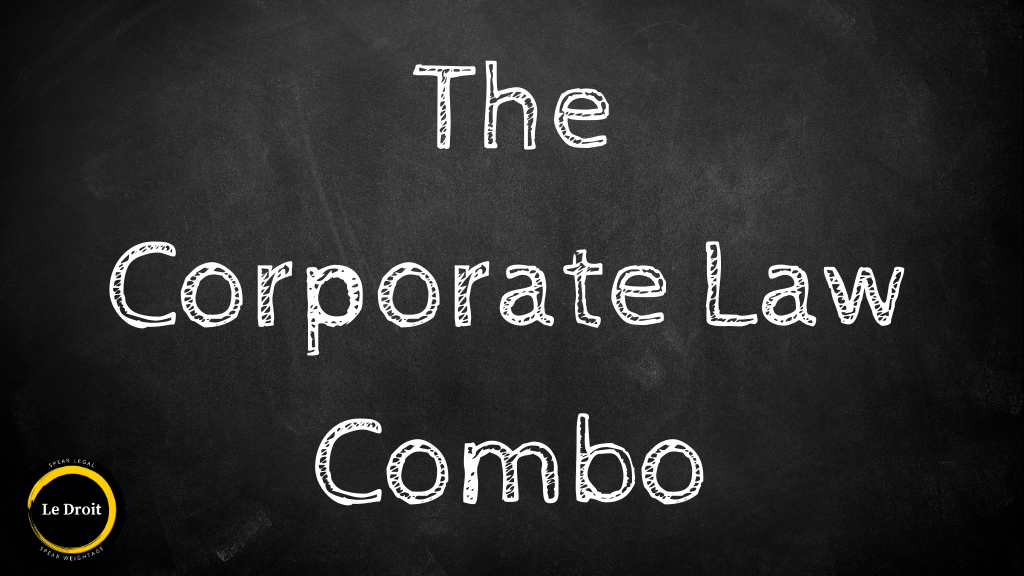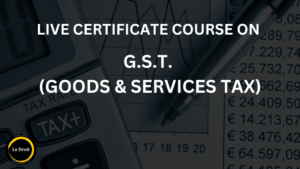Original price was: ₹8,000.00.₹5,000.00Current price is: ₹5,000.00.
The Corporate Law Combo- IPR, Contract Drafting, Software Contracts & Contract Management
Course CombosLive CoursesDescription
Step Into the World of Corporate Law with LeDroit India’s Power-Packed Combo!
You’ve set your sights on a corporate law career — now it’s time to build the skills that will get you hired, noticed, and trusted by Hiring Managers.
This Corporate Law Combo has been crafted for students and professionals who are ready to enter or switch into corporate law and want to stand out in interviews and on the job.
From contract drafting to intellectual property rights and software agreements, you’ll gain the practical knowledge that corporate legal teams actually use every day.
Starting: 26th October
Duration: 2 Months (Live Sessions)
Platform: Google Meet
Timings: 7:30 PM – 8:30 PM
Course Includes:
-
Hard Copy Certificates (Delivered to Your Address)
- Live & Interactive Sessions
-
Recordings of All Live Classes (for revision or if you miss a session)
-
Sample Drafts & Soft Copy Reading Materials
-
Practical Corporate Insights and Assignments from Industry Professionals
The Combo Includes 4 Live Certificate Courses:
1️⃣ Contract Drafting – 15 Days
2️⃣ Software Contracts Drafting – 12 Days
3️⃣ Intellectual Property Rights – 20 Days
4️⃣ Contract Lifecycle Management – 7 Days
(No class clashes — all courses are scheduled sequentially.)
After registration, you’ll be added to dedicated course groups where our team shares schedules, materials, and updates.
What You’ll Learn
1️⃣ Intellectual Property Rights (15 Days)
MODULE 1:
-
Introduction to IPR
-
Types of Intellectual Properties
-
Indian IPR System
-
Trade Secrets & Geographical Indication
TRADEMARK:
-
What is a Trademark?
-
Types of Logo & Characteristics
-
Trademark Search, Filing & Drafting
-
Replying to Trademark Objection
-
Trademark Infringement
MODULE 2 – PATENT
-
What is a Patent?
-
Law Governing Patents in India
-
What Can Be Patented
-
Essentials, Filing, Revocation & Opposition
-
Licensing and Assignment of Patents
MODULE 3 – COPYRIGHT
-
Meaning, Laws & Copyright Societies
-
Infringement & Procedure for Filing
-
Copyright Application, Assignment & Licensing
2️⃣ Contract Drafting (15 Days)
MODULE 1: Understanding Contracts & Types (Traditional and E-Contracts)
MODULE 2: Standard Form of Contracts – Importance & Types
MODULE 3: Registration, Stamping, Attestation & Notarization
MODULE 4: Breach of Contract – Types, Damages & Remedies
MODULE 5: Drafting Essentials – Operating Clauses, Boilerplates, Risk Clauses
MODULE 6: Drafting Practice
-
Master Service Agreement
-
Service Agreement
-
Incentive Contracts
-
Labour-Hour & Indefinite-Delivery Contracts
-
Employee Contracts
-
NDA & MoU
3️⃣ Software Contracts Drafting (12 Days)
MODULE 1: Technology vs Traditional Contracts – Introduction to Software Contracts
MODULE 2: Software Development Contracts – Types, Process & Drafting
MODULE 3: Software License & Support Agreements – Types & Drafting
MODULE 4: Software Outsourcing Agreements – Process & Drafting
MODULE 5: Open Source Software & Escrow Agreements – Drafting Practice
4️⃣ Contract Lifecycle Management (7 Days)
MODULE 1: Understanding CLM – Its Role in Businesses & Key Stakeholders
MODULE 2: Stages of CLM – From Request to Renewal
MODULE 3: Why CLM Matters – Efficiency, Compliance & Risk Mitigation
MODULE 4: Best Practices – Centralizing Contracts, Communication, Timely Reviews
MODULE 5: Challenges & Simple Solutions for Beginners
MODULE 6: Real-Life Case Studies in CLM Success
Why This Combo is a Game-Changer for Aspiring Corporate Lawyers
-
Learn how corporate legal teams actually work
-
Get sample drafts and real-world templates used by professionals
-
Live & Interactive Sessions for deeper conceptual clarity
-
Recorded sessions to revisit any topic anytime
-
Hard copy certificates to showcase your credentials
-
Get practical insights from experts who’ve worked with corporate clients
- Practical Real-Life Based Assignments to get hands-on practice
By the end of this combo, you won’t just understand corporate law—you’ll be ready to apply it with confidence in internships, interviews, and your professional journey.
What You’ll Get?
1. Live Classes + Recordings
2. Sample Drafts
3. Reading Materials
4. Corporate Insights
5. Interview Prep Booklet
6. Course Completion Certificates
7. Experience Letter (Provided only upon completion of all assignments)
Enroll Now and start your journey to becoming a corporate lawyer who stands out from the crowd!





